Despite bad weather, Zoom meetings still continue!
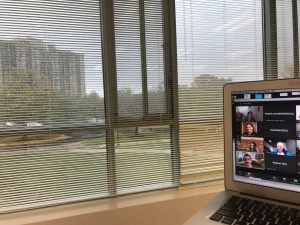
And in person labs with limited numbers of students are bringing hands-on back to students! Mini-prep gels, always a favorite.
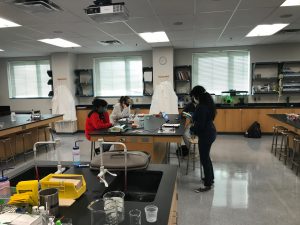
Despite bad weather, Zoom meetings still continue!

And in person labs with limited numbers of students are bringing hands-on back to students! Mini-prep gels, always a favorite.

Thanks to Prof. Joe Petersberger for his work to continue our international cooperation this summer! It was fantastic to meet with him and plan for post-COVID cooperation including our virtual guest lecturing appearances. Great to visit with an old friend and chart a course for future projects.
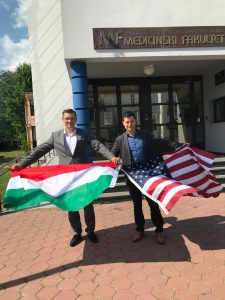
Thanks to Prof. Marija Heffer and colleagues at the University of Osijek (Croatia) Medical Faculty for the stimulating, engaging, and productive summer. Fruitful exchange of ideas, curriculum development, meetings with students, and casual chats about lab work provided a fruitful way to navigate the end of COVID-19. Hvala vam!
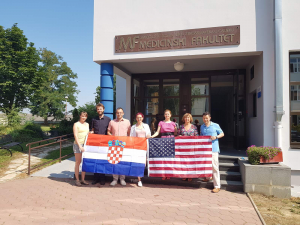
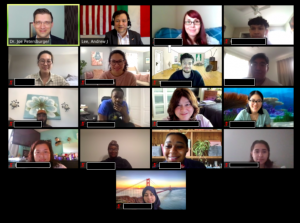
A big thanks goes out to Prof. Joe Petersburger from the University of Pécs (Hungary) Medical School for his guest lecture to General Introductory Biology courses during the recently concluded spring term. Prof. Petersburger generously joined us on a Saturday morning in late April for a far-ranging discussion on native insects to Hungarian lakes as well as the country’s response to COVID-19. We thank Prof. Petersburger for his commitment to international, trans-disciplinary learning and hope that COVID-19 has demonstrated that internet international exchange can become a part of our post-COVID-19 world. Thank you very much or Köszönöm szépen!
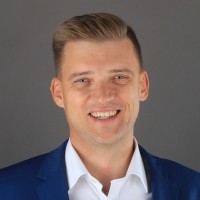
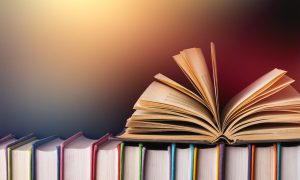
A Washington Post article “Screen Reading Can Wear on Your Attention” (January 2020) reinforces a commonly expressed idea that reading on printed paper improves reading comprehension when compared to reading on a screen. Especially during COVID, the push to the work online has intensified the time spent staring at glowing screens for prolonged periods of reading.
The Post article brings up additional problems with the push to digital:
•Unlike a printed book or article, digital content is often viewed as interchangeable and short-lived. There is less importance placed on treasuring a digital file (and valuing it as an important part of a published collection that is to be kept for many years). Instead, we’ll move on to the next webpage, digital download, or temporarily borrowed digital file. The digital content appears out of magic and equally easily disappears when a loan expires or the file is lost on a device in the midst of other files that don’t stick out. Having a pile of curated books, articles to read, or, gasp, magazine, that physically demand attention and aren’t invisibly tucked away in the innards of a computer may motivate the reader to attack the pile and not idly watch TV.
•Committing to read a digital book or webpage may not entail the same commitment as a physical product. The book or webpage is likely being viewed on a device that is connected to the internet, with a capable web browser, or app, that is an open invitation to distracted reading. Your facebook feed is only a click away, a sports highlight is also at the fingertips, as well as every movie ever made. Do you really want to read that Biology textbook on evolution and fossils when you can watch the new release on Netflix by tapping the screen three times?
It may also be nearly irresistible to avoid that targeted ads that follow you when you are attempting to read a relevant webpage related to your studies. Wow, Amazon reminded me that I didn’t buy that pair of shoes.
University research by European and Middle-Eastern scholars show that dense information (typically found in science texts) is more difficult to read on a screen than breezy narratives (the backbone of English lit or history classes). So perhaps reading that science textbook or printing out PDFs will improve comprehension and retention of material?
Worth considering how you read, as much as what you read!

Harvard University is offering 70 of its online classes for free (liberal arts, science, computer science). Though you won’t earn credits or receive a diploma/certificate, you can use your time to: prepare for a future class, investigate an area of interest, and stay focused on your education. Of particular note in Harvard’s online offerings: their high production values and effective use of videos with the professor and text/image overlays.
For more information, visit:
https://online-learning.harvard.edu/catalog/free
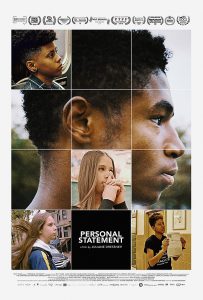
The transfer process (including applications) can be intimidating! If you are unsure about the process, want to ask questions, learn about free resources to help you, or just meet other people (to remind yourself that you’re not the only one struggling along), head to NVCC-Woodbridge on Wed. March 25 at 2pm for a free screening of the documentary film Personal Statement. The event is free but requires registration. Follow the link below (please let me know if the link does not work):
http://www.cvent.com/events/film-series/event-summary-0272aaa9c54846b49f771a69ca23867a.aspx

How many of us have a clean desk, uncluttered mind, and regular routine as we pursue projects?
In the 1880s, an Australian student named Richard Hodgson had the opportunity to study philosophy and literature at St. John’s College College, Cambridge (in the United Kingdom). It was a big investment in time and money to move from Australia to England, so he was determined to make the most of his chance. His recounted daily schedule:
He rose at 7:30am every morning, having the same breakfast of an egg, milk, bread and tea at 8am. For an hour he read. From 9am-noon, he wrote essays (his school assignments) or attended class. At noon, he ate a lunch of bread and tea. He then read until 3:45pm. He then played tennis before having a snack. Post-snack, it was additional workouts: weights, fencing, or boxing. His 9pm dinner consisted of bread, eggs, and tea. Following dinner, he read poetry until his 11:30pm bedtime.
In a letter to a friend, he commented on his routine, saying: “regularity for the organism is everything”
Of course, there was no radio, TV, or internet to distract him. But he avoided reading the daily newspaper or other magazines, never went to gambling parlors (where people played cards and socialized), bars (where other students often spent time), and coffee shops (which he presumably regarded as a waste of time or distracting).
How much of today’s life (supposedly better) takes us away from our important life goals? Today’s clutter include myriad food choices to select from (and the required time to pick up and wait for food), filling idle time with whatever is on the internet or streaming video (instead of devoting time to goal-directed reading). Mr. Hodgson never had time to be bored because his routine was dedicated to his singular goal of learning as much as possible. Note his dedication to physical fitness in the 1880s. Mens sana in corpore sano.
What is your academic (or other life) goal? How much time do you dedicate toward this goal on a daily basis? How much time is wasted on things that don’t help you accomplish your goal (video games, deciding what to eat, checking your phone)?
Recounted by Deborah Blum, professor of science journalism, University of Wisconsin
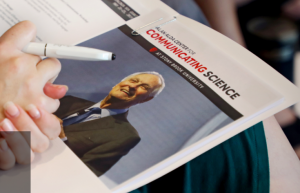
Great opportunity to attend a web conference sponsored by the Alan Alda Center for Science Communication at Stony Brook University last week. Simply amazing to be selected for this online conference. The Alda Center brought together a group of people from all over the world who all communicate about science in their work (other professors, government researchers, consultants). We spent the session engaged in a role-playing improvisation session to stimulate brainstorming. We then fruitfully discussed how to better explain science topics to audiences with varying levels of expertise. Highly recommend the Alda Center’s programs to other science teachers and anyone else who explains science as part of their everyday work. Hope to be invited back for another conference!
https://www.aldacenter.org/